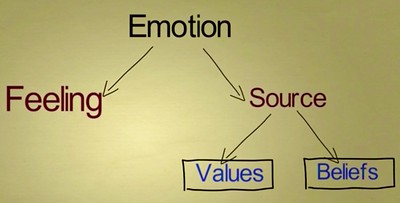This week, we were asked to watch Prabakaran Thirumalai’s 2015 Youtube clip and comment upon both the speaker and the content. The video asks “What are your Values? What is the relation between Values and Beliefs?” It is a “Practical Thinking Course Video which explains the difference between values and beliefs and how it improves to handle our emotions effectively…”
What are your values? Emotional Intelligence by Brain Quotes
I love Thirumalai’s quote “Anger is like drinking poison and expecting [the] other person to die.” I definitely takes a lot of self-control to stop getting angry, but keeping that quote in mind might be very useful breaking that anger cycle.
Interesting that Thirumalai has noticed that people with “Average IQ outperform High IQ 70% of the time.” Not surprising – and, thinking about the quote, I have probably seen many examples in school classrooms over the years where a High IQ student gets stunned to see others excelling in some area of unexpected expertise. I particularly remember a Year 3 student, who had just returned from a term at another school in a dedicated class for Intellectually Mild (I.M.) children. He was supposed to stay for the rest of his primary school years, but something clicked with the opportunity to work in small groups, and they considered him now able to cope in a mixed ability class. I sat him next to my brightest student, a very talented young mathematician. He and I were both astounded when our returned class member turned out to be a whiz at matchstick puzzles and other spatial problems. The bright student was embarrassed to be soundly beaten by him in these types of activities. It was good for both of them.
Thirumalai notes that “Emotional Intelligence covers four skills, which are: Self Awareness; Social Awareness; Self Management; and Relationship Management.” He then moves on to Goals and says, “If your Goals are aligned with your Values you lead a happy life. And if your Goals are misaligned with your Values, life becomes a misery.”
We are then encouraged to identify and then rank our Values… After looking through many online resources for massage therapists, and taking into account my own Values from previous careers, I have chosen:
1. Clear lines of Communication.
2. A focus on Clients, ie. identifying their needs.
3. Best Practice, in particular Ergonomics (for self-care and longevity of career) and, especially in the current pandemic situation, hygiene.
Thirumalai suggests we then set some goals which align with these values but, after achieving them, now what? From there, we move to the Growth Cycle.

To interpret the diagram below, Skill leads to Effort, which leads to Results. A self-perpetuating cycle is achieved when Belief also funnels into that Effort. We are thus encouraged by the Results to keep putting in more Effort. Believing in oneself builds Confidence, which then improves the Results.

It seems that our Emotions can be more efficiently altered by focusing on our Values and Beliefs, rather than our Behaviour. Sounds sensible to me!
I have been searching around for more quotes by Prabakaran Thirumalai and found this great one to finish up:
“Life is a game. It is up to you to be a toy or become a player.”
